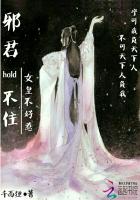Late at night when Dyudya and the old woman and the neighbouring watchman were all asleep, Sofya went out to the gate and sat down on the bench. She felt stifled and her head ached from weeping. The street was a wide and long one; it stretched for nearly two miles to the right and as far to the left, and the end of it was out of sight. The moon was now not over the yard, but behind the church. One side of the street was flooded with moonlight, while the other side lay in black shadow. The long shadows of the poplars and the starling-cotes stretched right across the street, while the church cast a broad shadow, black and terrible that enfolded Dyudya's gates and half his house. The street was still and deserted. From time to time the strains of mu sic floated faintly from the end of the street --Alyoshka, most likely, playing his concertina.
Someone moved in the shadow near the church enclosure, and Sofya could not make out whether it were a man or a cow, or perhaps merely a big bird rustling in the trees. But then a figure stepped out of the shadow, halted, and said something in a man's voice, then vanished down the turning by the church. A little later, not three yards from the gate, another figure came into sight; it walked straight from the church to the gate and stopped short, seeing Sofya on the bench.
"Varvara, is that you?" said Sofya. "And if it were?"It was Varvara. She stood still a minute, then came up to the bench and sat down.
"Where have you been?" asked Sofya. Varvara made no answer.
"You'd better mind you don't get into trouble with such goings-on, my girl," said Sofya. "Did you hear how Mashenka was kicked and lashed with the reins? You'd better look out, or they'll treat you the same.""Well, let them!"
Varvara laughed into her kerchief and whispered: "I have just been with the priest's son." "Nonsense!""I have!"
"It's a sin!" whispered Sofya.
"Well, let it be. . . . What do I care? If it's a sin, then it is a sin, but better be struck dead by thunder than live like this. I'm young and strong, and I've a filthy crooked hunchback for a husband, worse than Dyudya himself, curse him! When I was a girl, I hadn't bread to eat, or a shoe to my foot, and to get away from that wretchedness I was tempted by Alyoshka's money, and got caught like a fish in a net, and I'd rather have a viper for my bedfellow than that scurvy Alyoshka. And what's your life? It makes me sick to look at it. Your Fyodor sent you packing from the factory and he's taken up with another woman. They have robbed you of your boy and made a slave of him. You work like a horse, and never hear a kind word. I'd rather pine all my days an old maid, I'd rather get half arouble from the priest's son, I'd rather beg my bread, or throw myself into the well. . .
"It's a sin!" whispered Sofya again. "Well, let it be."Somewhere behind the church the same three voices, two tenors and a bass, began singing again a mournful song. And again the words could not be distinguished.
"They are not early to bed," Varvara said, laughing.
And she began telling in a whisper of her midnight walks with the priest's son, and of the stories he had told her, and of his comrades, and of the fun she had with the travellers who stayed in the house. The mournful song stirred a longing for life and *******. Sofya began to laugh; she thought it sinful and terrible and sweet to hear about, and she felt envious and sorry that she, too, had not been a sinner when she was young and pretty.
In the churchyard they heard twelve strokes beaten on the watchman's board.
"It's time we were asleep," said Sofya, getting up, "or, maybe, we shall catch it from Dyudya."They both went softly into the yard.
"I went away without hearing what he was telling about Mashenka," said Varvara, ****** herself a bed under the window.















